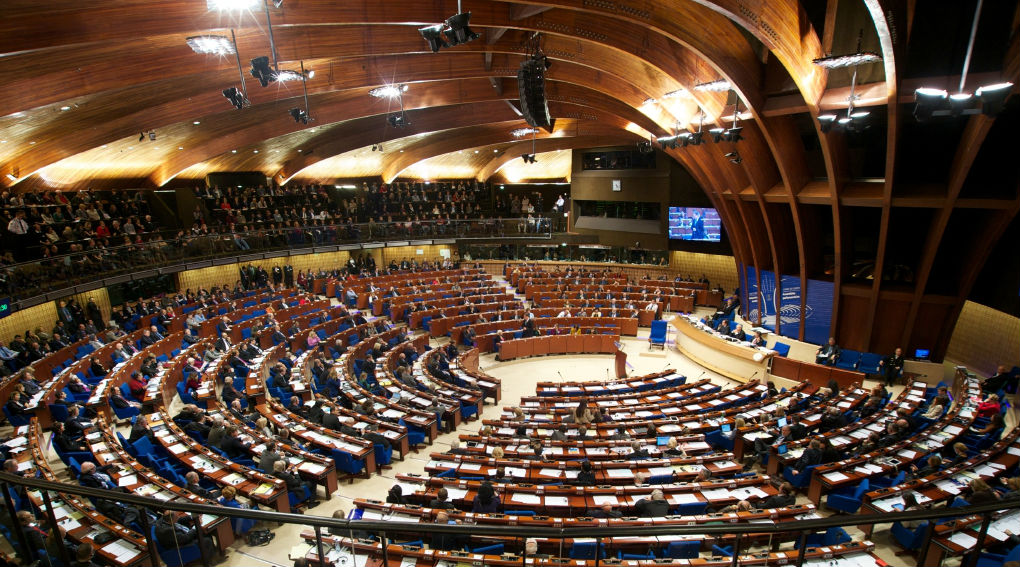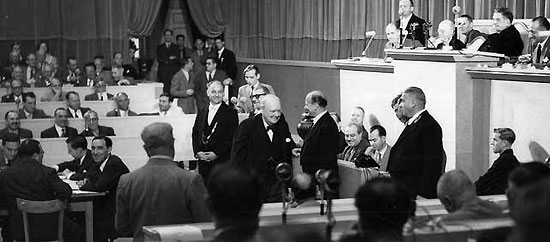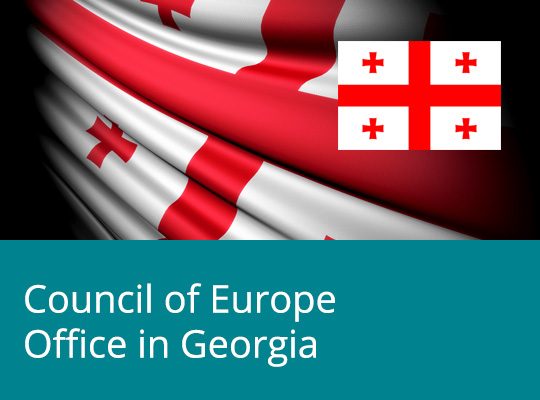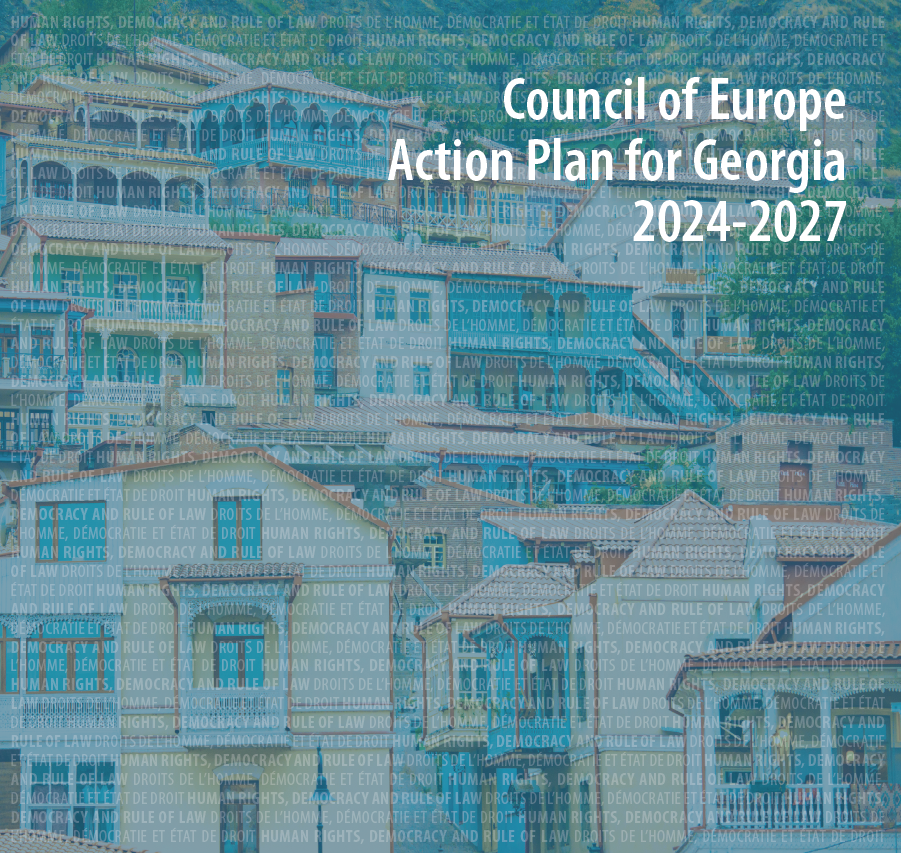Parliamentary Assembly
Europe's Democratic Conscience

A Melting Pot of Ideas
Since 1949, PACE, which is sometimes said to be the driving force of the Council of Europe, has been behind many of the Organisation's major initiatives (the European Convention on Human Rights, for instance). It must be consulted about all international treaties drawn up at the Council of Europe. It elects the judges of the European Court of Human Rights and the Commissioner for Human Rights, as well as the Secretary General and Deputy Secretary General of the Council of Europe and its own Secretary General.
Concrete Results
The texts adopted by PACE – recommendations, resolutions and opinions – serve as guidelines for the Committee of Ministers, national governments, parliaments and political parties. Eventually, through legislation and practice, these texts influence and improve Europeans' lives.
President
Tiny Kox
Biography
Martinus Josephus Maria (Tiny) Kox, born 1953, Zeelst, Netherlands
Political experience
Since 1975, member of the Socialist Party (SP) of the Netherlands
1981, member of the Executive Committee of the Socialist Party
1982-1999, head of the Socialist Party group on Tilburg Municipal Council
1993-2003, General Secretary of the Socialist Party
Since 2003, leader of the Socialist Party in the Dutch Senate
2003-2010, member of the Dutch delegation to the NATO Parliamentary Assembly
Since 2003, member of the Dutch delegation to PACE
2007-2022, chairperson of the Unified European Left (UEL) group in PACE
2010, chairperson of the PACE ad hoc committee to observe the parliamentary elections in Bosnia and Herzegovina
2011-2012, Vice-President of PACE
2011, chairperson of the PACE ad hoc committee to observe the parliamentary elections in the Russian Federation
2011, PACE accepts Kox's proposal to grant the Palestinian Legislative Council “partner for democracy” status and a PACE delegation
2012-2013, Vice-President of PACE
2012, chairperson of the PACE ad hoc committee to observe the presidential elections in the Russian Federation
2014, PACE rapporteur on Europe's public administrations in flux: public service under threat?
2014, chairperson of the PACE ad hoc committee to observe the parliamentary elections in Bosnia and Herzegovina
2014, PACE rapporteur on Evaluation of the partnership for democracy in respect of the Palestinian National Council
2015, chairperson of the PACE ad hoc committee to observe the parliamentary elections in Turkey
2016, PACE rapporteur on Combating international terrorism while protecting Council of Europe standards and values
2017, PACE rapporteur on Defending the acquis of the Council of Europe: preserving 65 years of successful intergovernmental co-operation
2018, PACE rapporteur on The honouring of obligations and commitments by Bosnia and Herzegovina
2019, PACE rapporteur on The role and mission of the Parliamentary Assembly: main challenges for the future
2020, chairperson of the PACE ad hoc committee to observe the parliamentary elections in Georgia
2020-2022, PACE General Rapporteur on the budget and intergovernmental programme
2021, PACE rapporteur on The Assembly’s vision on the strategic priorities for the Council of Europe
2021, PACE rapporteur on Expenditure of the Parliamentary Assembly for the biennium 2022-2023
2021, PACE rapporteur on Budgets and priorities of the Council of Europe for the period 2022-2025
2021, PACE rapporteur on Guidelines on the scope of the parliamentary immunities enjoyed by members of the Parliamentary Assembly
Professional experience
1975-1982, Tilburg Law Centre
1981-1994, Editor-in-Chief of Tribune, the members magazine of the Socialist Party
Personal
Tiny Kox lives in Tilburg, is married, has two sons and three grandchildren.
The Vice-Presidents
The Vice-Presidents of the Assembly
Read more...
Twenty Vice-Presidents are elected annually at the beginning of an ordinary session and remain in office until the opening of the next session (but a Vice-President whose delegation is renewed in the course of a session does not remain in office). The number of Vice-Presidents has been increased on several occasions as the number of member States has grown.
he function of a Vice-President is to take the Chair in the Assembly on any occasion when the President is unavailable. While doing so, the Vice-President exercises the powers, and is subject to the obligations, laid upon the President under Part V of the Rules of Procedure. Thus, as with the President, a Vice-President may not both take the Chair during a debate and otherwise take part in that debate. When a Vice-President is in the Chair, his or her Substitute may take the Vice-President's place in the Assembly, and may speak and vote there. The Official Report of debates refers to a Vice-President when he or she presides as "the President". Unlike the President, Vice-Presidents do regularly speak in debates which they have not chaired.
Committees
8 Committees
Read more
Most of the reports debated in plenary session or at the Standing Committee are prepared by a committee. The eight general committees of the Assembly are the following:
- Committee on Political Affairs and Democracy (AS/Pol)
- Committee on Legal Affairs and Human Rights (AS/Jur)
- Committee on Social Affairs, Health and Sustainable Development (AS/Soc)
- Committee on Migration, Refugees and Displaced Persons (AS/Mig)
- Committee on Culture, Science, Education and Media (AS/Cult)
- Committee on Equality and Non-Discrimination (AS/Ega)
- Monitoring Committee (AS/Mon)
- Committee on Rules of Procedure, Immunities and Institutional Affairs (AS/Pro).
In addition, most of the committees have sub-committees or a general rapporteur on specific subjects, and may create ad hoc committees for specific activities. All committees meet during the part-sessions in Strasbourg and most meet at least once in-between part-sessions, usually in Paris.
Procedure
How PACE Works
Read more...
Committee meetings
Although committees deal in particular with reports, they have great freedom to discuss any matter within their competence when they agree to do so. They organise hearings, colloquies or conferences on particular subjects, the findings of which can then be used for the preparation of reports to the Assembly.
Sessions and sittings
The sessions of the Parliamentary Assembly are divided into four part-sessions, each lasting for about a week at the end of January, April, June and the beginning of October.
Seating
Seats allocated to members in the Chamber are arranged in the shape of a horseshoe and allocated in alphabetical order. Consequently members do not sit in national delegations or in political groups.
Official and working languages
According to the Statute, the official languages of the Council of Europe are English and French. However, the Assembly provides interpretation in German, Italian and Russian as additional working languages.
The Table Office
The Table Office advises members of the Assembly, secretaries of delegations, of political groups and other officials on how best to achieve their objectives within the Rules of Procedure and serves as custodian of these rules.
Debates
The Assembly's plenary debates are held in public while committees meet generally in camera. The debates are conducted according to the principles observed in national parliaments.
Voting
Only members duly designated by the national delegation and who have signed the register of attendance for the specific sitting shall be entitled to vote. The Assembly normally votes by using the electronic voting system.
Majorities
A two-thirds majority is required for questions such as a draft recommendation or draft opinion to the Committee of Ministers or the adoption of urgent procedure. In respect of a draft resolution and any other decision, a majority of the votes cast is required.
Documents
The Assembly can adopt three different types of texts: recommendations, resolutions and opinions.
- Recommendations contain proposals addressed to the Committee of Ministers, the implementation of which is within the competence of governments.
- Resolutions embody decisions by the Assembly on questions, which it is empowered to put into effect, or expressions of view, for which it alone is responsible.
- Opinions are expressed by the Assembly on questions put to it by the Committee of Ministers, such as the admission of new member States to the Council of Europe, draft conventions, or the budget of the Organisation.

Parliamentary Assembly
The Parliamentary Assembly of the Council of Europe regularly adopts reports on the monitoring of Georgia's obligations and commitments as a member state. Georgia is represented in the Parliamentary Assembly by a delegation of 5 representatives and 5 substitutes.
Did you know?
The Council of Europe is a separate organisation from the 28-member EU. No country has joined the EU without first joining the Council of Europe.










